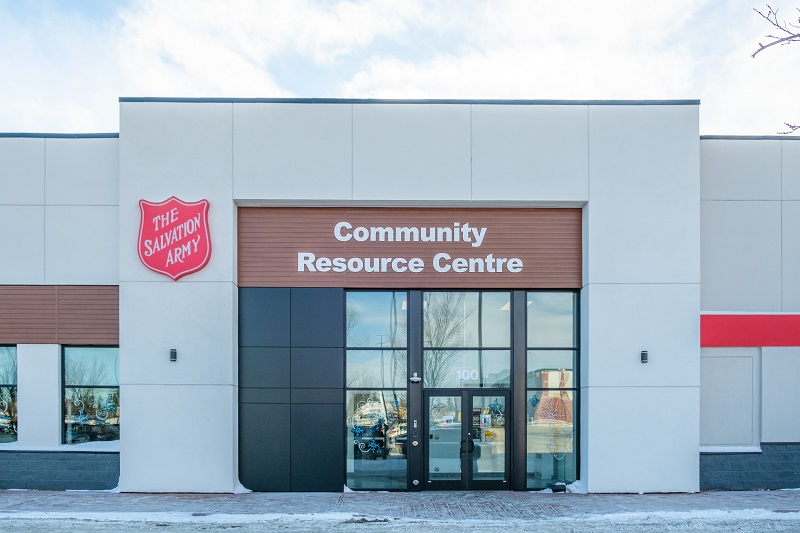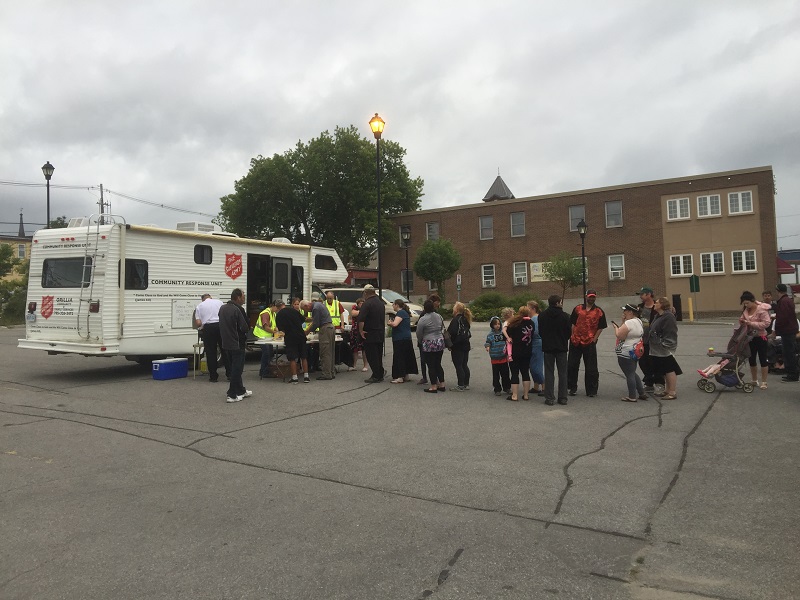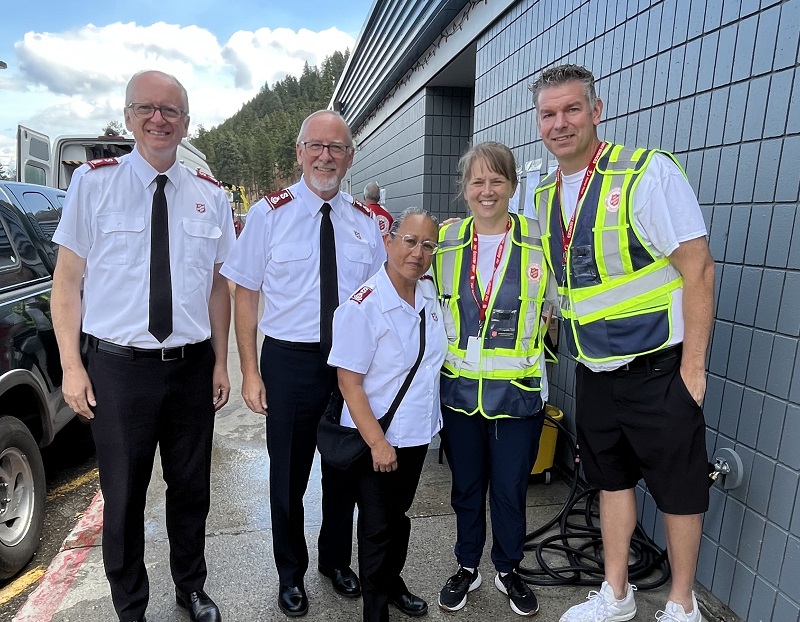Hope Amid the Devastation
 Jeff Noel was watching the televised images of disaster in Port-au-Prince, Haiti, when his telephone rang. His superior was on the line asking if he could fly to the earthquake-ravaged nation for a month as part of The Salvation Army’s Emergency Disaster Services team.
Jeff Noel was watching the televised images of disaster in Port-au-Prince, Haiti, when his telephone rang. His superior was on the line asking if he could fly to the earthquake-ravaged nation for a month as part of The Salvation Army’s Emergency Disaster Services team.
“Needless to say, I gave him an emphatic, ‘Yes!’ ” Jeff recalls. “This is what I’ve trained for and it was an honour to be selected.”
Airport Mission
Jeff, an emergency disaster relief director for The Salvation Army, was well qualified for the task. In high school in his native Newfoundland and Labrador, he had been part of the St. John Ambulance service and has always been interested in emergency response. As a member of The Salvation Army, he served during the Red River flood of 1997 in Manitoba, the great ice storm of 1998 in eastern Ontario and Quebec, 9-11, and hurricane Ike in the American South in 2008, “anywhere people were in need after a natural or manmade catastrophe,” he states. Along with a team of Canadian Salvation Army officers, he had taken an international disaster course that prepared him for his duties in Haiti.
After layovers in Toronto, Florida and the Dominican Republic, Jeff found himself heading into the Port-au-Prince airport on an old airplane that was “held together with bailing wire and spit,” he smiles.
Jeff had already been briefed on his assignment before he touched down. Working in searing 35 C heat with Australian, British and American Salvation Army members, Jeff’s job was to deal with airport logistics. “Supplies of food and water were coming off the transports on pallets and were deposited onto the fields next to the runways,” explains Jeff. “We had to load them into the waiting trucks for distribution. All of this was done by hand as we had no heavy machinery. It was back-breaking work. But if we didn’t get the supplies on the trucks on time and on schedule, Haitians were going to go hungry.
“At the end of the day, people had to be fed. That was our objective, and we had to get it done.”
Sounds of Hope
Gradually, Jeff and his colleagues brought order to the chaos. A warehouse was erected to protect the supplies, and a prized forklift—complete with Quebec licence plates—was obtained. “How that got there, I do not know,” marvels Jeff.
By the time he left for home after a month of non-stop effort, food distribution was being accomplished with clockwork efficiency, a testament to the hard work of The Salvation Army workers and their Haitian counterparts.
Through all of this, Jeff came away with a profound respect for the people with whom he worked.
“They’re no strangers to adversity,” Jeff says. He worked with a man who spent two days digging the bodies of his wife and mother out of the wreckage of their home, while his three children stayed in the only undamaged bedroom. “He eventually sent the children to his mother-in-law so he could work with us; he was just trying to survive,” says Jeff.
“I’ve seen hope in the midst of the poverty and devastation,” he continues. “Saturday and Sunday mornings, you could hear it, the music wafting across the city as people gathered in churches to worship. It was awesome. I couldn’t understand the words but I knew the tunes that were being sung in French and Creole. My heart was lifted because these people have a faith that couldn’t be extinguished by poverty or catastrophe.”
Jeff knows that the people of Haiti are industrious and gifted. “The potential for Haiti to bounce back is stronger than ever,” he believes. “They want help, not handouts, and I’m convinced that with our assistance, their tomorrow will be brighter.”
Would Jeff return? “I’d go back in a heartbeat,” he affirms, “and I’d go back with an even greater affection for the people of Haiti. I’d hit the ground running.”
by Ken Ramstead



